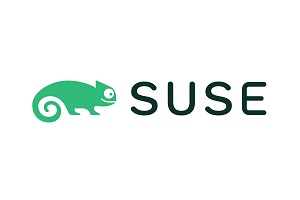SUSE, a global provider in open and secure enterprise-grade solutions, has announced SUSE Adaptive Telco Infrastructure platform (ATIP), a telco-optimised edge computing platform that enables telecom companies to accelerate and future-proof modernisation of their networks. It achieves this with an open and flexible infrastructure that adapts easily to future needs, is optimised for telco-grade performance, and simplifies operations at scale.
Unlike current solutions in today’s market, ATIP is built for the telco edge from the ground up. ATIP enables faster rollouts with a highly scalable and programable management solution for telco-grade infrastructure. As the European player in the international open-source infrastructure software market, SUSE has developed this platform in close collaboration with the European telco operators such as Deutsche Telekom, Orange, Telecom Italia, Telefonica, and others.
“The future of the telecom infrastructure is fast moving and often difficult to predict,” says Keith Basil, SUSE Edge general manager. “Telecom operators are looking for flexible solutions to modernise their existing networks, help rollout 5G networks quickly and adopt open frameworks, such as Open RAN while navigating disaggregation of their networks. ATIP has a flexible and adaptable infrastructure that future-proofs next-generation networks to support novel applications and use cases expected to arise from 5G, Multi-Access Edge Computing and general Edge computing. With ATIP, our telecom customers will thrive in a highly competitive environment.”
Future-proof
SUSE ATIP is a telco-optimised edge computing platform that packages the key infrastructure components – Linux, Kubernetes, security, management tools – in a customisable form, so Telco operators can easily adopt it for broad range of use cases across mobile and fixed networks. Further, the operators can minimise risk by using their existing infrastructure given ATIP’s support of a wide range of hardware. ATIP’s modularity and flexibility is explicitly designed to support and enable future looking cloud frameworks, such as LF Europe’s project Sylva.
Telco-grade performance
SUSE ATIP delivers telco-grade performance attributes across the entire stack. Its pperating system layer provides low-latency, real-time performance and fast data path. The Kubernetes layer ensures performance-sensitive applications run optimally, with full lifecycle container security delivered by SUSE NeuVector. Additional functional attributes include:
- Built for Edge from the ground up, so customers can get optimal performance without the burden of legacy systems. SUSE ATIP delivers lightweight Kubernetes distributions fit for resource constrained or remote devices in strictly regulated environments. Immutable Linux is optimized to support containers and microservices, making it an ideal container and virtualisation host at the edge. With security integrated across the full stack – from applications to Kubernetes to operating systems, datacenter level of security is made available to every device, wherever it is located.
- Optimised for Telco: SUSE’s Kubernetes and Linux are optimised for Telco functions – workloads can be scheduled based on underlying hardware functionality, direct access is allowed to network interfaces from Kubernetes Pods, a broad range of hardware enablement is made available, and telecom specific protocols are supported.
- Modular. Designed to thrive in a multi-vendor environment, ATIP includes modules which can be used together or individually to suit operators’ requirements.
Simplified operations at scale
SUSE ATIP utilises Rancher Prime, a Kubernetes management solution that is known for its simplicity user experience. SUSE has made key enhancements to Rancher Prime to support telecom use cases, with the following benefits:
- Faster rollouts. ATIP utilises GitOps to help users manage and consistently deploy thousands of Kubernetes clusters easily. With integration of CNCF’s Cluster API, operators can further speed the process with programmatic APIs that also offer a vendor-neutral integration point.
- Unified management. Manage Linux and Kubernetes from a single pane of glass. Save operating costs and administration overhead, while increasing the efficiency of lifecycle operations at scale.
- Zero-touch provisioning. Save costs with simple zero touch onboarding of enterprise-grade edge hardware, eliminating the need for skilled technical staff onsite – connect power, network, and switch on device: software does the rest.
Customer testimonial:
Danny Al-Gaaf, senior cloud technologist, Deutsche Telekom, says “We have had a longstanding partnership with SUSE, which has been a good experience. By using SLE Micro, SUSE Manager and Rancher, we can fully automate deployments for upgrading our Edge cloud system.”
For more information about SUSE’s Telecom, visit SUSE. If attending Mobile World Congress Barcelona 2023, stop by Intel and Juniper booths to check out SUSE Edge demos.
Comment on this article below or via Twitter: @VanillaPlus OR @jcvplus






